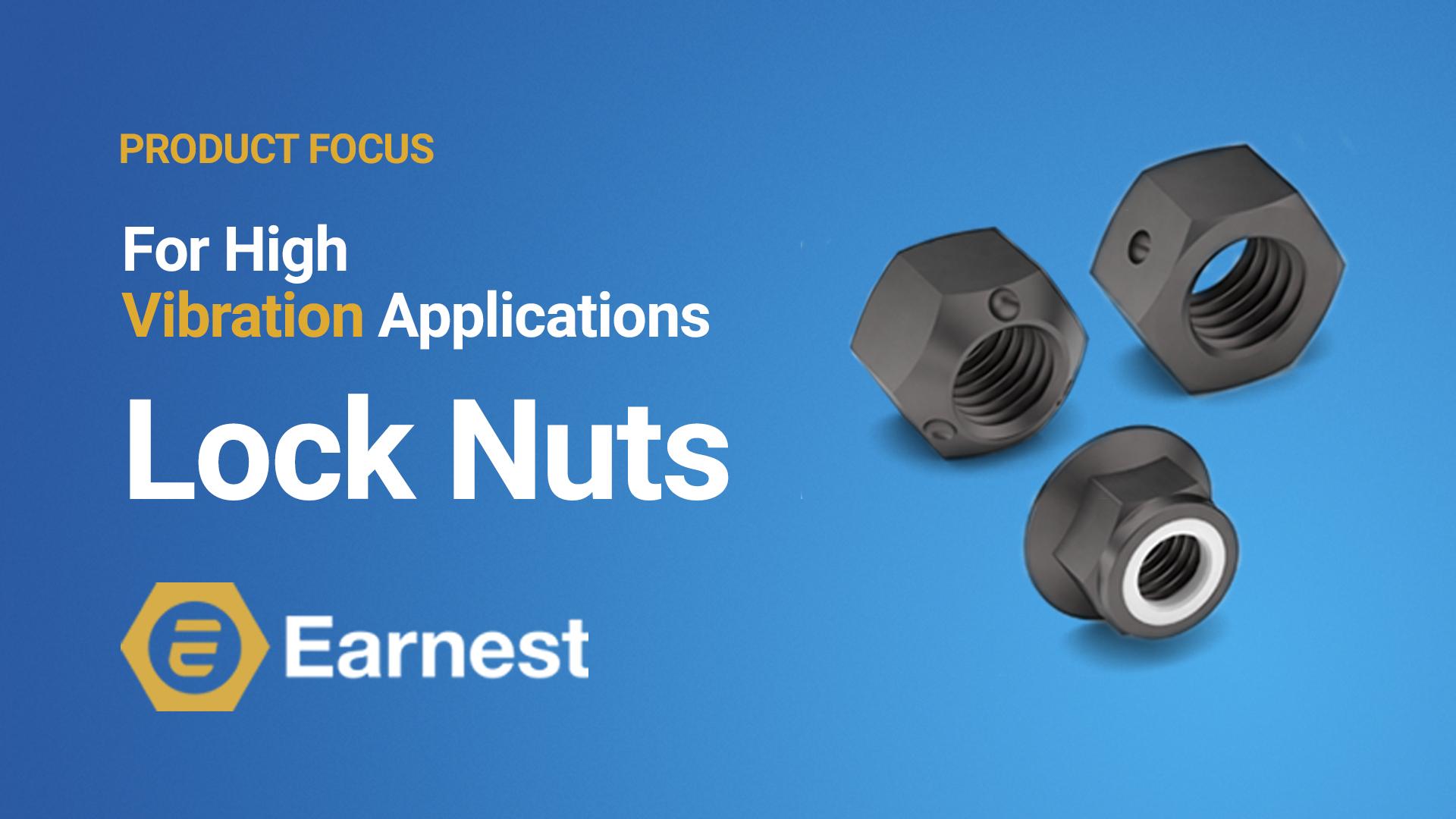
First Year In Fasteners - What Is A Lock Nut?
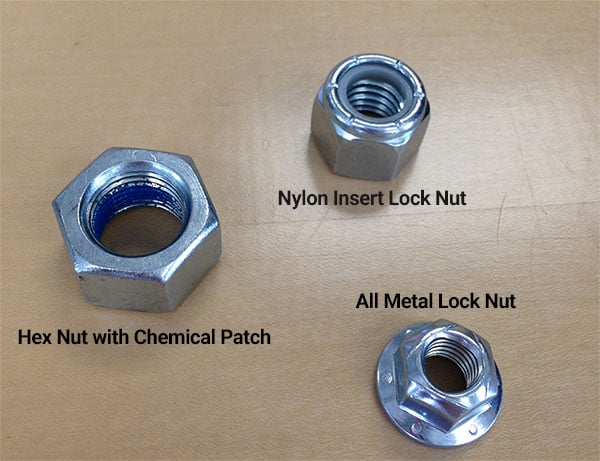
It’s all about Lock Nuts this week! Lock Nuts, unlike the name implies, do not mean that the nut will be permanently fixed on the bolt. They’re just made to withstand vibrations so they can’t easily come apart.
There are two kinds of Lock Nuts: All Metal and Nylon Insert. What we’ve seen at Earnest is people have a preference of one over the other, but the thing is, they’re made to the same specifications, so it really does come down to personal preference in which one you use.
All Metal Lock Nuts go by many other names, but they definitely live up to the title because they are, indeed, made with all metal. They’re crimped or indented to help create that “locking” feature and prevent the nut from loosening in high-vibration applications.
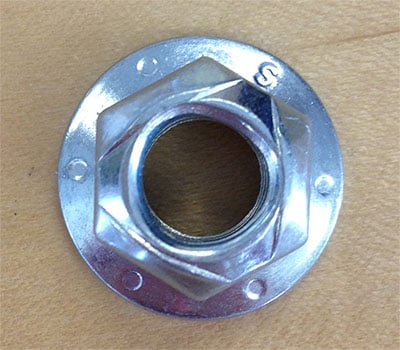
A 2-Way Lock Nut (sometimes referred to as a Center Lock Nut) is a lower profile nut meaning it’s not as tall as a standard All-Metal Lock nut. They have a crimp in the middle of the flats and no top or bottom. Because of this, they are traditionally found in the automotive industry because on the assembly line, it’s more efficient when a worker doesn’t have to determine top or bottom. 2-Way Lock Nuts could also be used in other industries, especially where vibrating and rotating machinery is used, but using it versus a standard All-Metal Lock Nut or a Nylon Insert Lock Nut is personal preference. Earnest Machine stocks both left and right hand 2-Way Lock Nuts.
Nylon Insert also goes by other names, but also is no misnomer. In these Lock Nuts is an elastic nylon ring, which is meant to prevent loosening in vibrating applications. There are some pluses and minuses, however. Nylon Insert is a little more expensive and the Nylon can only withstand heat up to 250 degrees Fahrenheit and shouldn’t be exposed to direct sunlight. Additionally, exposure to harsh chemicals will melt the Nylon. All Metal Lock Nuts don’t have the same limitations.
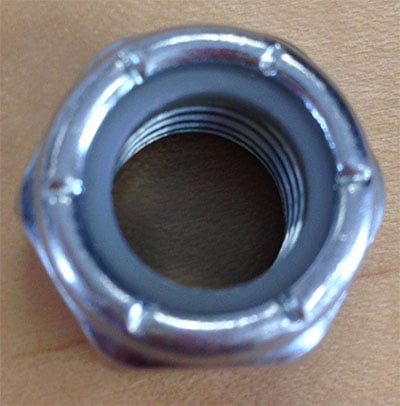
Because of the “locking” feature of Lock Nuts, they are more expensive than standard hex nuts, but there is another option if you want that locking feature: chemical patches. If you have a standard hex nut, you could make it into a Lock Nut with a chemical patch.
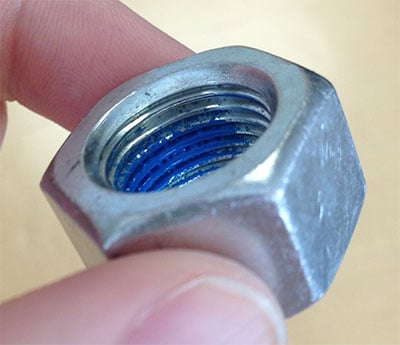
It would save money and space stocking nuts using a chemical patch, however unlike traditional All Metal or Nylon Lock Nuts, their locking feature is only good once. So if you use a chemical patch on a hex nut and later remove that nut from its application, the next time you use it, you can’t count on that locking feature working the same way you would for All Metal or Nylon Insert. With chemical patches, there is an expiration date on them. Once a patch is applied to the nut, you need to use it within 3 years, otherwise you can’t count on that locking feature working.
So in which applications will you see Lock Nuts? Everywhere! Automotive, Construction, Agriculture, and more! The Automotive and Aircraft industries love Nylon Insert Lock Nuts. Trucks love the Flange-style Lock Nuts. Any application that has vibration would be a good fit for a Lock Nut.
What are your thoughts on Lock Nuts? Any preference of All Metal over Nylon Insert, and why? Log into your web store account and comment below!
Want to know more about Lock Nuts? Our Applications Engineer, Kevin Connolly, wrote a post about lock nuts you can find here
